Bipolar disorder and ADHD are two of the most common mental health conditions affecting millions globally. Both disorders can impact a person's well-being and strain their job, relationships, and more. Recent research suggests that about 1 in 13 patients with ADHD has comorbid BD, and up to 1 in 6 patients with BD has comorbid ADHD.
While they may share some similarities, bipolar disorder and ADHD are distinct conditions with their unique symptoms, causes, and treatments. Knowing these two disorders' differences is crucial for accurate diagnosis and effective treatment. This article will discuss the key differences between adult bipolar disorder and ADHD.
What Are ADHD vs Bipolar?
Both bipolar disorder and ADHD (attention deficit hyperactivity disorder) are mental health conditions that affect the brain differently. Bipolar disorder is a mood disorder that causes extreme mood swings, ranging from mania to depression.
On the other hand, ADHD is a neurodevelopmental disorder that affects attention and behaviour. These can mimic major depressive disorder when in the bipolar depression stage, and people with adult ADHD can also show depressive symptoms.
What Are the Core Symptoms of Bipolar and ADHD?
One of the main ways in which Bipolar and ADHD differ is in their core symptoms. While both disorders can cause difficulty with concentration and mood, the specific symptoms experienced are different.
What Are the Symptoms of Bipolar Disorder?
The symptoms of early-onset bipolar disorder may vary depending on the type and severity of the condition. However, some common signs of bipolar disorder include:
Manic Symptoms: Feeling euphoric or irritable, being overly energetic, talking rapidly, engaging in risky behaviours, and having racing thoughts during a manic episode.
Depressive Symptoms: Feeling sad, hopeless, and losing interest in activities once enjoyed. They may not feel hungry or sleepy and can have a low quality of life.
What Are the Symptoms of ADHD?
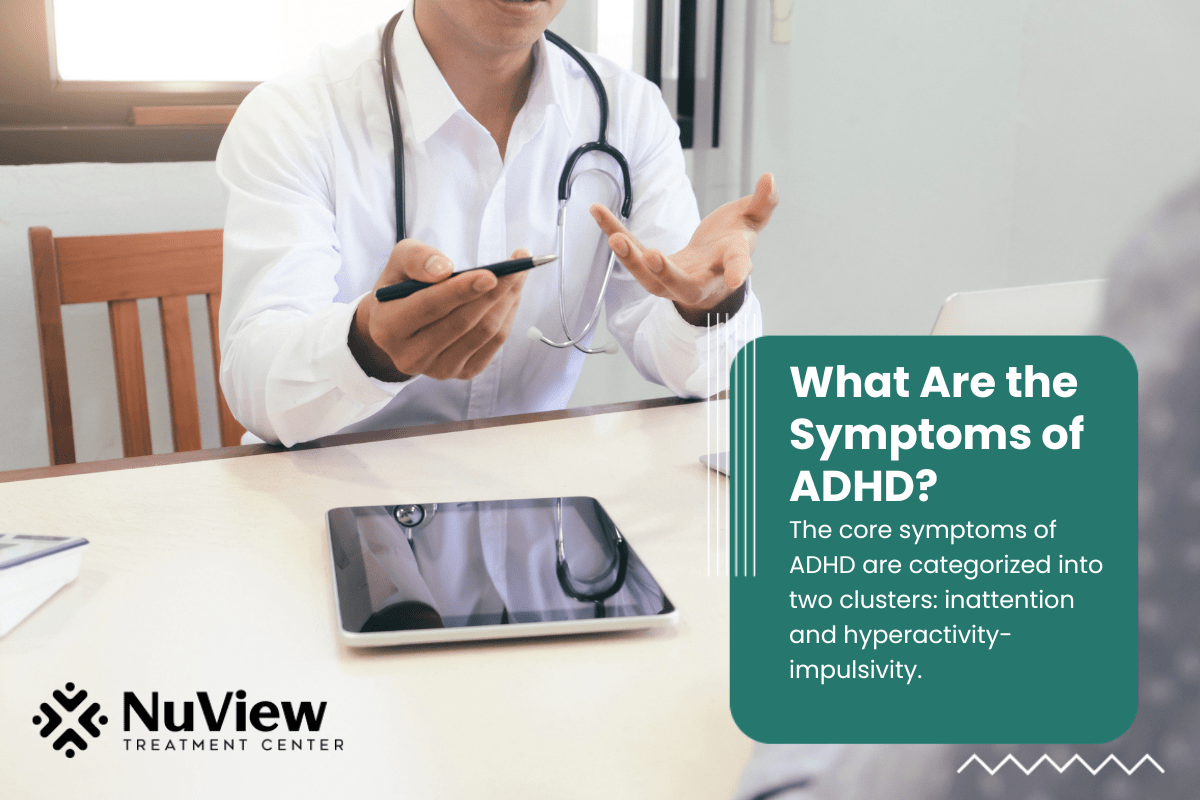
The core symptoms of ADHD are categorized into two clusters: inattention and hyperactivity-impulsivity. Some common signs of each cluster include:
Inattention: Struggling to pay attention or follow through on tasks, being easily distracted, forgetting things, and making careless mistakes.
Hyperactivity-impulsivity: Fidgeting, talking excessively, interrupting others, difficulty waiting for turns, and acting without considering the consequences.
Get Started With Nuview Treatment Center
Our dedicated professional staff is here to guide you or your loved one on the journey to lasting recovery, offering support every step of the way.
What Are the Main Differences Between ADHD vs Bipolar?
Although similar, there are some key differences between Bipolar and ADHD. These are mainly because of how each disorder affects the brain and body.
Bipolar vs Adhd Symptoms
While bipolar disorder and ADHD may share similar symptoms, they are distinct conditions with key differences. These include:
| Symptoms | ADHD | Bipolar Disorder |
|---|---|---|
| Focus | Difficulty concentrating | Poor focus during depressive phases |
| Activity Level | Hyperactivity, restlessness | High energy in manic phases |
| Impulsivity | Hasty decisions, impulsiveness | Risk-taking in manic phases |
| Mood Swings | Less common, milder | Extreme, between mania and depression |
| Behavior | Disorganization, forgetfulness | Behavioral extremes with mood shifts |
| Social Interaction | Challenges due to impulsivity | Varies from withdrawal to over-sociability |
| Duration | Long-term, consistent | Cyclical, episodic |
How Do Treatments Bipolar and ADHD Differ?
Although bipolar disorder and ADHD may require medication, the medications used for treatment differ. For bipolar disorder, mood stabilizers or antipsychotics are typically prescribed to manage symptoms. In contrast, stimulants such as methylphenidate are commonly used to treat ADHD.
What Symptoms Are Common to Both?
While the core symptoms of Bipolar and ADHD differ, there are some shared symptoms between the two disorders. These may include:
-
Difficulty concentrating
-
Impulsivity
-
Mood swings (although not as extreme in ADHD)
-
Changes in sleep patterns and energy levels.
The similarities between bipolar disorder and ADHD can be explained by their shared impact on brain functioning. Both disorders affect brain regions regulating mood, attention, and behaviour.
Furthermore, daily functioning and comorbidity difficulties can stem from similar disruptions in cognitive and emotional processes. Understanding these shared factors can help inform treatment approaches for individuals with co-occurring bipolar disorder and ADHD.
Get Started With Nuview Treatment Center
Is There an Overlap in Treatment Options?

While the medications used for bipolar disorder and ADHD differ, treatment strategies may overlap. Both disorders can benefit from cognitive-behavioral therapy (CBT) and psychoeducation. These approaches can help individuals develop coping skills to manage symptoms and improve overall functioning. Additionally, changes in lifestyle habits such as exercise, sleep, and diet can also be beneficial for managing symptoms of both disorders.
Can One Person Have Both Bipolar Disorder and ADHD?
Yes, an individual can have both bipolar disorder and ADHD. Having one disorder may increase the risk of developing the other. This is because both disorders involve disruptions in brain functioning and can share genetic factors.
What Does the Research Say?
Recent research has shown that individuals with bipolar disorder and ADHD may have similar patterns of brain activity, particularly in the prefrontal cortex. This area of the brain regulates emotions and impulses, explaining why both disorders can share mood instability and impulsivity symptoms.
Additionally, studies have found a higher prevalence of ADHD in individuals with bipolar disorder than in the general population. This suggests a potential link between the two disorders and highlights the importance of proper assessment and treatment for both conditions.
Overall, ongoing research is shedding light on the relationships between Bipolar and ADHD, helping to improve our understanding and management of these complex mental health conditions. So if you or a loved one is experiencing symptoms, seeking professional help can provide valuable support in managing
What Are the Clinical Implications?
As we continue to learn more about the similarities and differences between Bipolar and ADHD, this knowledge can have important clinical implications. It can inform clinicians in accurately diagnosing these conditions and developing effective treatment plans that address both disorders.
Understanding the potential comorbidity of these disorders also highlights the importance of a comprehensive approach to mental health care. This may include screening for co-occurring conditions and providing integrated treatment that addresses all aspects of an individual's mental health.
How Are Each of These Disorders Treated?
The two disorders are treated using different approaches, making it easier to distinguish between them.
Treatment Options for Bipolar Disorder
The treatment for bipolar disorder typically involves a combination of medication, psychotherapy, and lifestyle changes.
Medication:
a. Mood stabilizers: These are the mainstay of bipolar disorder treatment. Common mood stabilizers include lithium, valproic acid (Depakote), and lamotrigine (Lamictal).
b. Antipsychotic medications: Some atypical antipsychotic drugs, like aripiprazole (Abilify), quetiapine (Seroquel), and olanzapine (Zyprexa), are used to help manage manic or mixed episodes.
c. Antidepressants: These may be prescribed cautiously during depressive episodes but are often used with mood stabilizers to prevent inducing mania.
d. Anti-anxiety medications: In some cases, benzodiazepines or other anti-anxiety drugs may be used to manage anxiety or agitation during manic or mixed episodes.Psychotherapy:
a. Cognitive-behavioral therapy (CBT): CBT can help individuals with bipolar disorder learn to recognize and manage their symptoms, improve coping strategies, and develop a routine to maintain stability.
b. Interpersonal and social rhythm therapy (IPSRT): IPSRT focuses on maintaining a regular daily routine and managing social interactions to help prevent mood swings.
c. Family-focused therapy: This involves the family in the treatment process and helps improve communication and support for the person with bipolar disorder.Electroconvulsive therapy (ECT): ECT may be considered for severe cases of bipolar disorder, especially when other treatments are ineffective.
Lifestyle modifications:
a. Sleep: Establishing a regular sleep schedule and ensuring adequate sleep is crucial in managing bipolar disorder.
b. Stress management: Reducing stress through relaxation techniques, exercise, and mindfulness can help prevent mood swings.
c. Substance use: Avoiding alcohol and recreational drugs is essential, as these can trigger or worsen bipolar symptoms.
Treatment Options for ADHD
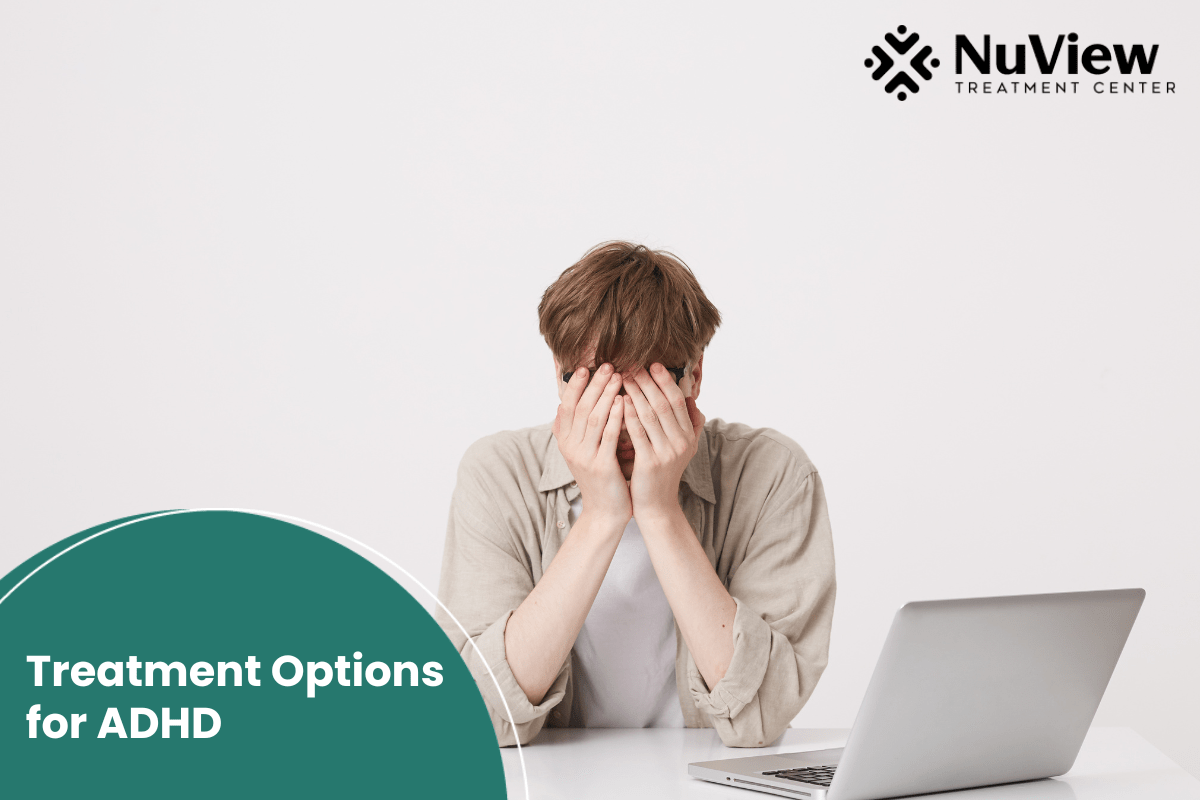
Treatment for ADHD typically involves a combination of behavioural therapies, lifestyle modifications, and medication.
Behavioural Therapies:
a. Behavioral therapy: This therapy focuses on teaching individuals with ADHD specific strategies to survive using cognitive skills and behavioural management practices.
b. Parent training: For children with ADHD, parents can undergo training to learn how to effectively manage their child's behaviour and provide structure and consistency at home.
c. Social skills training: This can help individuals, especially children, improve their interpersonal and communication skills.
d. Occupational therapy: Occupational therapists can help individuals develop practical skills for managing daily tasks and responsibilities.Medication:
a. Stimulant medications: These are the most commonly prescribed medications for ADHD, including drugs like methylphenidate (e.g., Ritalin) and amphetamine-based medications (e.g., Adderall). These medications can help increase focus and attention and reduce impulsivity.
b. Non-stimulant medications: For individuals who do not respond well to stimulants or have concerns about their use, non-stimulant medications like atomoxetine (Strattera), guanfacine (Intuniv), and clonidine (Kapvay) may be prescribed.Lifestyle Modifications:
a. Routine and structure: Establishing consistent routines and schedules can help individuals with ADHD manage their time and responsibilities.
b. Diet and nutrition: While no specific diet is proven to treat ADHD, some people find that certain dietary changes, such as reducing sugar and additives, can help manage symptoms. Omega-3 fatty acids and a balanced diet may also be beneficial.
c. Exercise: Regular physical activity can help reduce symptoms of ADHD by increasing focus and reducing restlessness.d. Sleep: Ensuring adequate and consistent sleep is essential for managing ADHD symptoms.Support and Education:
a. Support groups: Joining a support group or engaging with others with ADHD can provide emotional support and practical advice.
b. Education: Learning more about ADHD can help individuals and their families better understand the condition and develop effective coping strategies.Assistive Technology: Some individuals with ADHD may benefit from using tools and apps to improve organization, time management, and focus.
Accommodations: In educational and workplace settings, accommodations such as extended time on tasks, a quiet workspace, and extra support may be helpful.
Getting Help at NuView Treatment Center
At NuView Treatment Center, we deeply understand the distinctive challenges posed by Bipolar Disorder and ADHD.
Our team is highly trained in clinical matters and deeply compassionate, dedicated to assisting you regain control over your life.
Don't hesitate to contact us today because everyone deserves a life filled with joyful moments, unburdened by the relentless rhythms of Bipolar Disorder and ADHD.
People Also Search:
Am I Bipolar | Bipolar Schizoaffective Disorder | Bipolar Disorder ICD 10 | Bipolar 1 | Bipolar 2 | Bipolar 1 vs 2 | Celebrities With Bipolar Disorder | Bipolar Mixed Episode | What Causes Bipolar Disorder | Bipolar Disorder Symptoms In Females | Supportive Therapy for Bipolar Disorder | Does Bipolar Get Better With Age | How To Tell If A Bipolar Man Loves You | Bipolar vs Depression
- What Are ADHD vs Bipolar?
- What Are the Core Symptoms of Bipolar and ADHD?
- What Are the Main Differences Between ADHD vs Bipolar?
- What Symptoms Are Common to Both?
- Is There an Overlap in Treatment Options?
- Can One Person Have Both Bipolar Disorder and ADHD?
- How Are Each of These Disorders Treated?
- Getting Help at NuView Treatment Center
- What Are ADHD vs Bipolar?
- What Are the Core Symptoms of Bipolar and ADHD?
- What Are the Main Differences Between ADHD vs Bipolar?
- What Symptoms Are Common to Both?
- Is There an Overlap in Treatment Options?
- Can One Person Have Both Bipolar Disorder and ADHD?
- How Are Each of These Disorders Treated?
- Getting Help at NuView Treatment Center
Get Help Today!
- Schiweck, C., Arteaga-Henriquez, G., Aichhulzer, M., Edwin Thanarajah, S., Vargas-Cáceres, S., Matura, S., Grimm, O., Haavik, J., Kittel-Schneider, S., Ramos-Quiroga, J. A., Faraone, S. V., & Reif, A. (2021). Comorbidity of ADHD and adult bipular disorder: A systematic review and meta-analysis. Neuroscience and biobehavioral reviews, 124, 100–123. https://doi.org/10.1016/j.neubiorev.2021.01.017
- Jain A, Mitra P. Bipular Disorder. [Updated 2023 Feb 20]. In: StatPearls [Internet]. Treasure Island (FL): StatPearls Publishing; 2023 Jan-. Available from: https://www.ncbi.nlm.nih.gov/books/NBK558998/
- Magnus W, Nazir S, Anilkumar AC, et al. Attention Deficit Hyperactivity Disorder. [Updated 2023 Aug 8]. In: StatPearls [Internet]. Treasure Island (FL): StatPearls Publishing; 2023 Jan-. Available from: https://www.ncbi.nlm.nih.gov/books/NBK441838/
- Cainelli, E., & Bisiacchi, P. (2022). Neurodevelopmental Disorders: Past, Present, and Future. Children (Basel, Switzerland), 10(1), 31. https://doi.org/10.3390/children10010031
- Barbosa, M., & Guedes, R. (2022). Adult attention-deficit/hyperactivity disorder and bipular disorder: diagnostic and management challenges. European Psychiatry, 65(Suppl 1), S466–S467. https://doi.org/10.1192/j.eurpsy.2022.1185
Everyone is Welcome Here and We All Have Your Back
Your healing journey deserves a personalized approach. At NuView, we integrate expertise in behavioral therapy, mental health, and substance use treatment to create a customized recovery plan tailored to your unique needs.
Connect with our Admissions Specialists today.
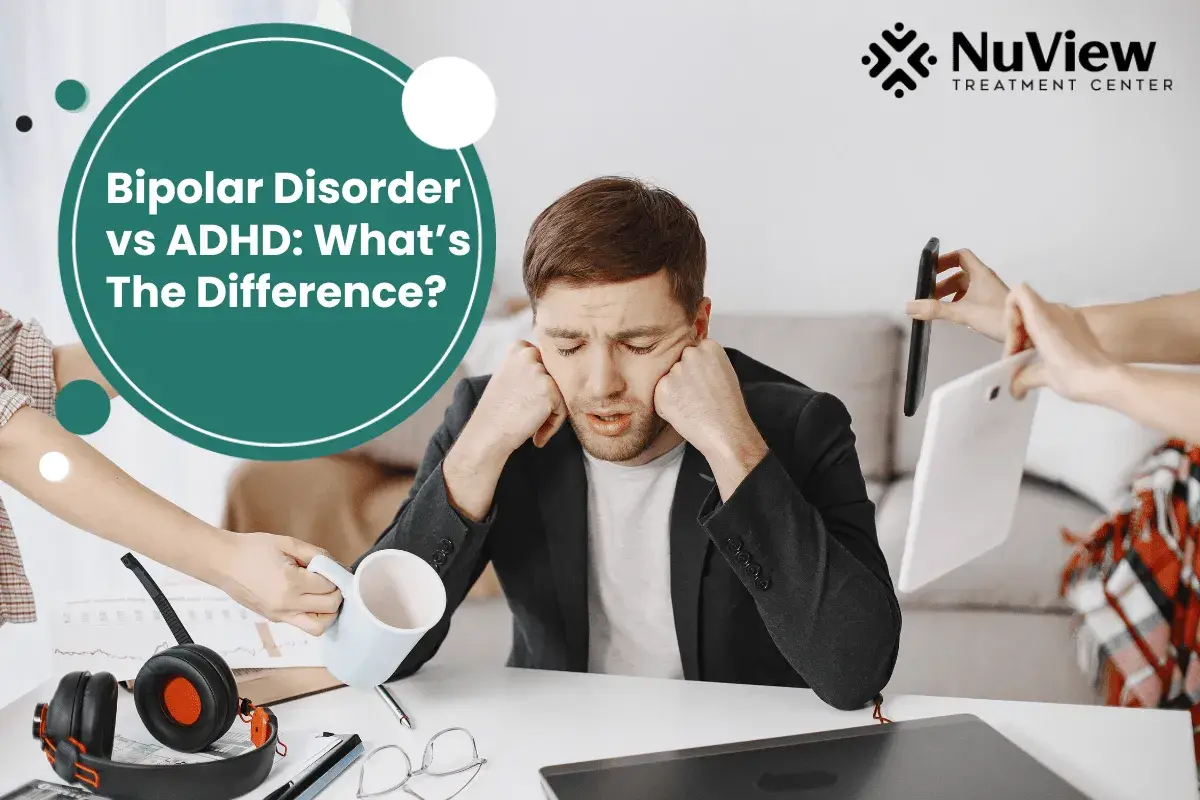
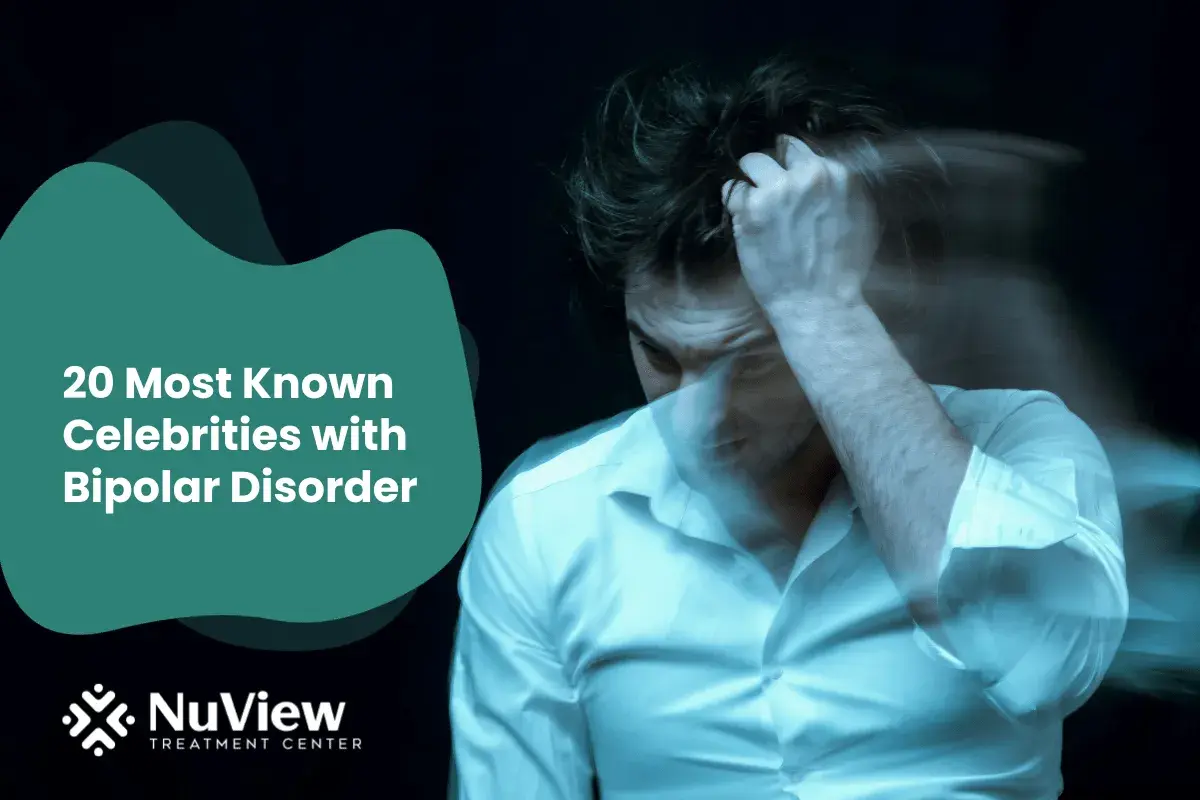
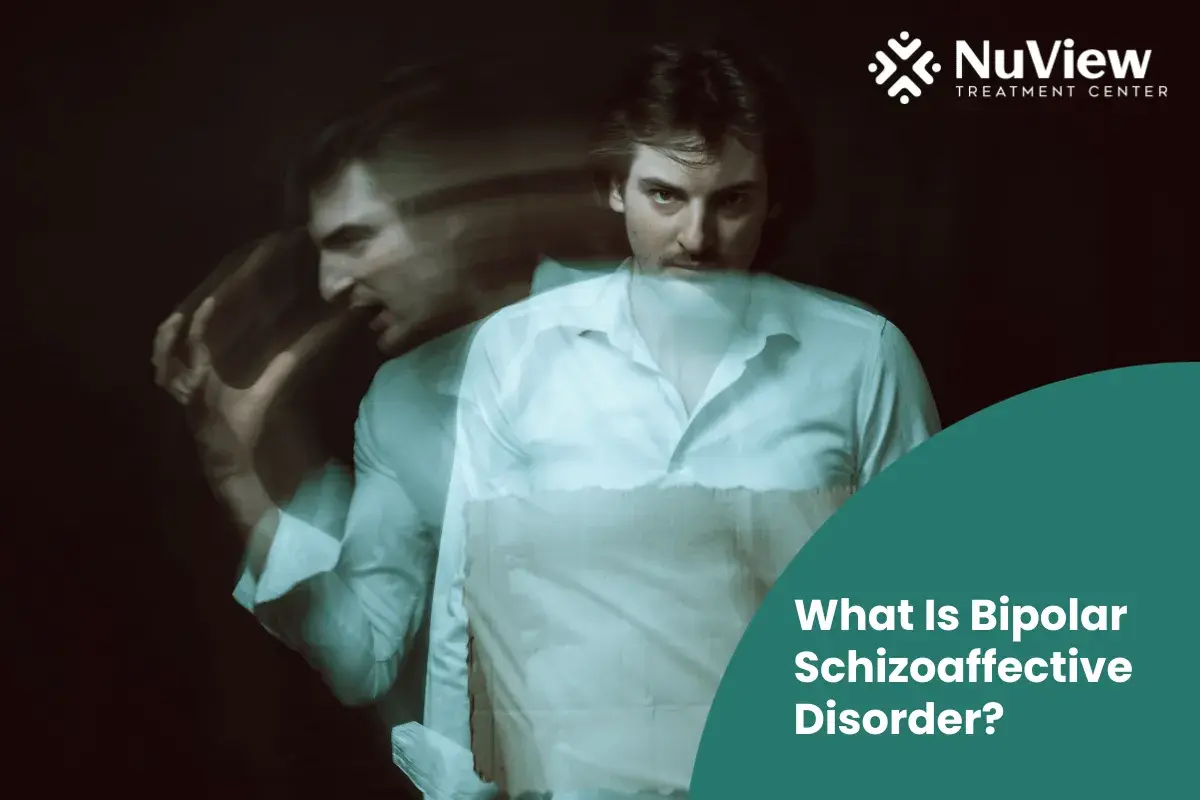
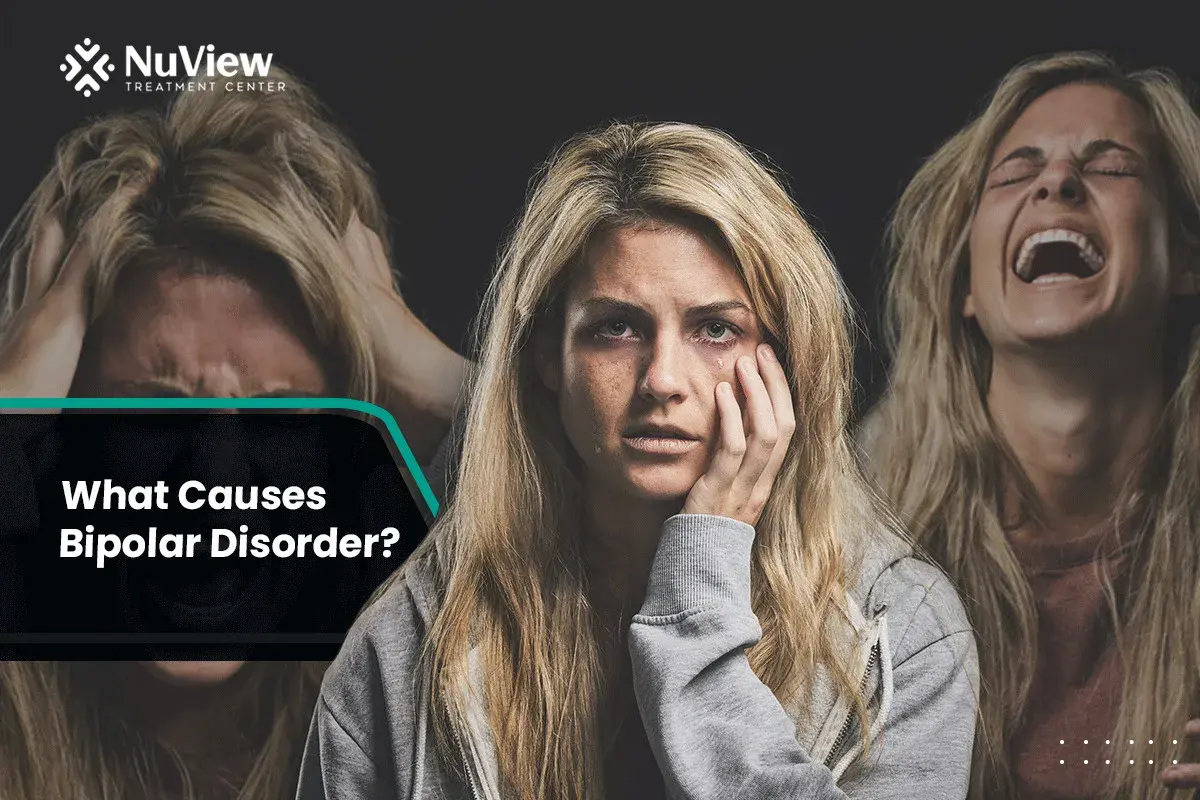



Written By
Dr. Ryan Peterson